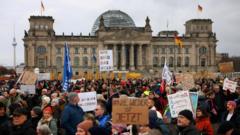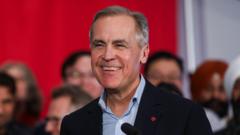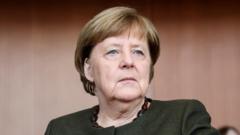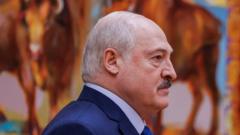Germany's political landscape has shifted dramatically following a recent confidence vote that resulted in the dissolution of Chancellor Olaf Scholz’s three-party coalition. Amid economic and security hurdles, new elections are anticipated early next year.
Germany's Government in Turmoil: A Confidence Vote Fallout

Germany's Government in Turmoil: A Confidence Vote Fallout
Chancellor Olaf Scholz's coalition government collapses under pressure, leading to a caretaker administration.
In a significant political upheaval, Germany witnessed the dissolution of its government after Chancellor Olaf Scholz lost a crucial confidence vote in Parliament. The vote, which ended with 394 in favor and 207 against with 116 abstentions, plunges the nation into a leadership crisis amidst escalating economic challenges and ongoing instability linked to the war in Ukraine.
This latest development leaves Europe’s largest economy under the control of a caretaker government as the country braces for elections scheduled for Feb. 23, marking only the fourth snap election in modern German history. The collapse of Scholz's government follows a period of unrest within his coalition, which eroded his parliamentary majority and capability to pass critical laws or a budget.
Looking ahead, the political landscape for the upcoming elections appears crowded, with seven parties likely competing for seats in Parliament. Current polls suggest that the conservative Christian Democratic Union is positioned to emerge as the frontrunner, though fringe parties, particularly on the right side of the political spectrum, could also secure significant support. As Germany navigates these turbulent times, the implications for its next government and the broader European context remain to be seen.
This latest development leaves Europe’s largest economy under the control of a caretaker government as the country braces for elections scheduled for Feb. 23, marking only the fourth snap election in modern German history. The collapse of Scholz's government follows a period of unrest within his coalition, which eroded his parliamentary majority and capability to pass critical laws or a budget.
Looking ahead, the political landscape for the upcoming elections appears crowded, with seven parties likely competing for seats in Parliament. Current polls suggest that the conservative Christian Democratic Union is positioned to emerge as the frontrunner, though fringe parties, particularly on the right side of the political spectrum, could also secure significant support. As Germany navigates these turbulent times, the implications for its next government and the broader European context remain to be seen.





















